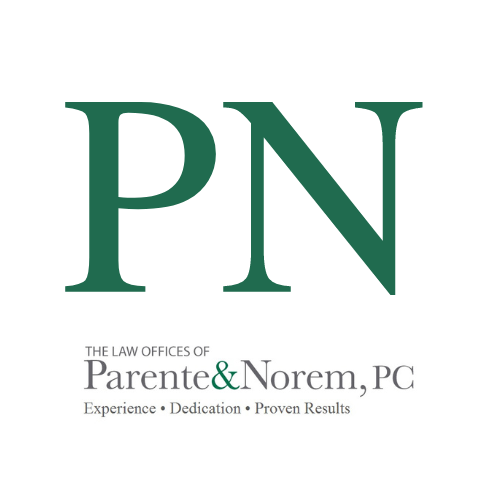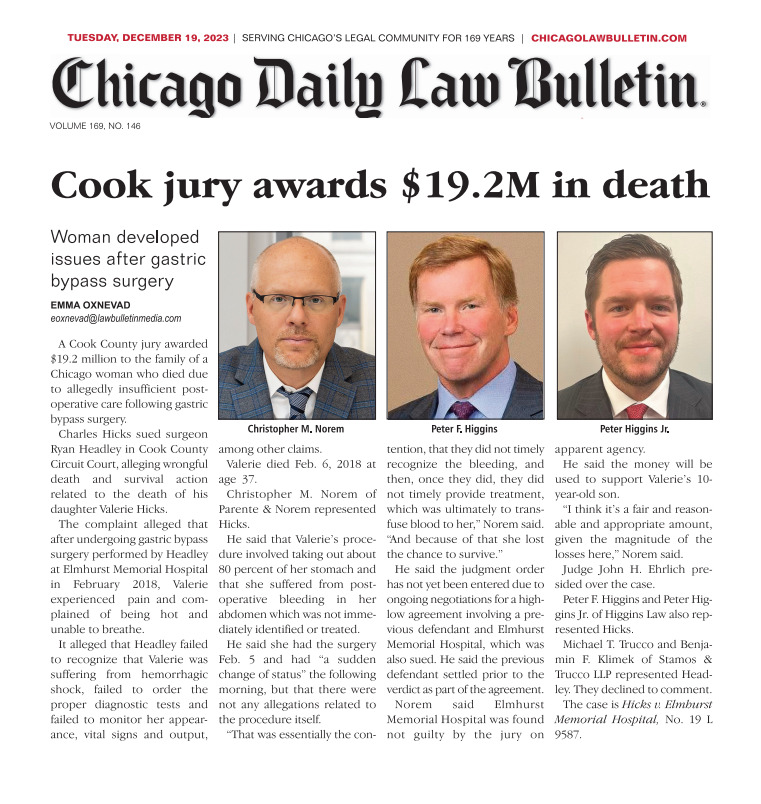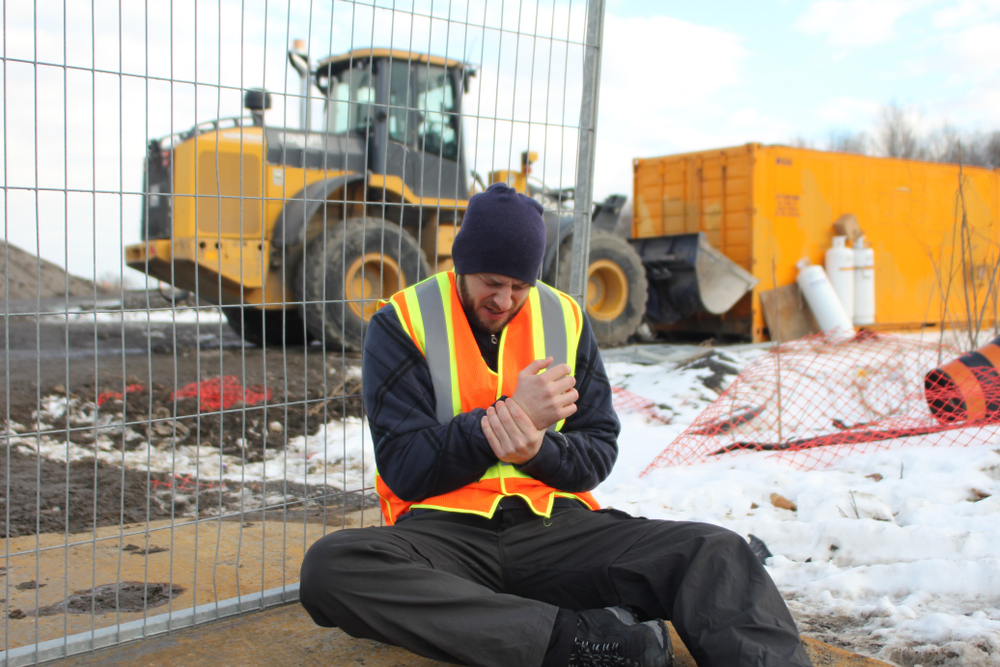
P&N BLOG | Winter Work Hazards In Illinois
Working during the winter can pose significant risks, particularly in Illinois, where the harsh weather conditions amplify the dangers across various professions. Outdoor workers face a multitude of winter-related hazards, such as slipping and falling on snow or ice-covered sidewalks, cold stress, and exposure-related injuries.
According to the U.S. Bureau of Labor Statistics, the prevalence of snow or ice-related injuries is alarming, with more than 20,000 incidents reported annually. Certain occupational groups are disproportionately affected by these injuries, including snow cleanup crews, sanitation workers, emergency responders, construction workers, truck drivers, agricultural workers, and recreational workers.
Apart from the direct risks of exposure to cold temperatures leading to serious injuries, the winter months also bring about changes in working conditions, further impacting workplace safety. If you find yourself injured in a workplace accident during the winter, seeking guidance from an experienced workers’ compensation lawyer is crucial. You can reach out to The Law Offices of Parente & Norem, P.C. at 312.641.5926 for a free consultation.
Understanding the challenges you face during this difficult time, the attorneys at The Law Offices of Parente & Norem, P.C. are committed to providing support and robust legal representation. They aim to help you navigate the complexities of the process, ensuring you have the best possible chance of obtaining the workers’ compensation benefits you deserve.

P&N BLOG | 2023 Holiday Travel Season – What You Need to Know
As the festive season approaches, millions of Americans are eagerly preparing to embark on holiday travels, whether by hitting the open road or taking to the skies. With expectations of record-breaking numbers and bustling airports, it’s crucial to be well-informed before packing your bags. Here’s a comprehensive guide to help you navigate the busiest holiday travel season.
Air Travel Projections
The skies are set to be busier than ever this holiday season, with AAA predicting a staggering 7.5 million people taking flight from Saturday, Dec. 23 to Monday, Jan. 1. This projection would surpass the previous record of 7.3 million fliers set during the 2019 holiday season.
Peak Travel Days and Pricing
According to Hopper, Thursday, Dec. 21, and Friday, Dec. 22 are expected to be the busiest days for departures. If you’re looking to snag a deal, consider flying on Dec. 19, Christmas Eve, or Christmas Day when airfares are averaging $349 round trip—a modest 3% increase from the previous year. Conversely, the most expensive days to fly are forecasted to be Dec. 22 and Dec. 26.
Major Airlines’ Anticipations
United Airlines is bracing itself for its busiest-ever holiday travel season, with approximately 9 million passengers set to fly from Dec. 21 to Jan. 8—an impressive 12% jump from the previous year. United’s peak days for Christmas travel are expected to be Dec. 22 and Dec. 23, while Jan. 2 is anticipated to be the busiest day for New Year’s travel.
Delta Air Lines is also gearing up for a substantial holiday travel period, projecting nearly 9 million customers from Dec. 21 to Jan. 7. Delta’s peak days fall between Dec. 21-22 and Dec. 26-30.
Road Travel Projections
For those opting to hit the road, AAA forecasts that 104 million people will embark on holiday road trips—an increase of 1.8% from the previous year. The busiest days on the road are expected to be Saturday, Dec. 23; Thursday, Dec. 28; and Saturday, Dec. 30, according to transportation analytics company INRIX.
Travel Timing Tips
If you’re planning to leave for the holidays on Dec. 23, INRIX suggests hitting the road before 10 a.m. for a smoother journey. On the flip side, if you’re heading home the day after Christmas, the roads are likely to be emptiest before noon, according to INRIX.
As the holiday travel season unfolds, being armed with the right information can make all the difference in ensuring a stress-free and enjoyable journey. Whether you’re soaring through the clouds or cruising along the highways, plan ahead, stay informed, and make the most of this festive season with your loved ones. Safe travels!
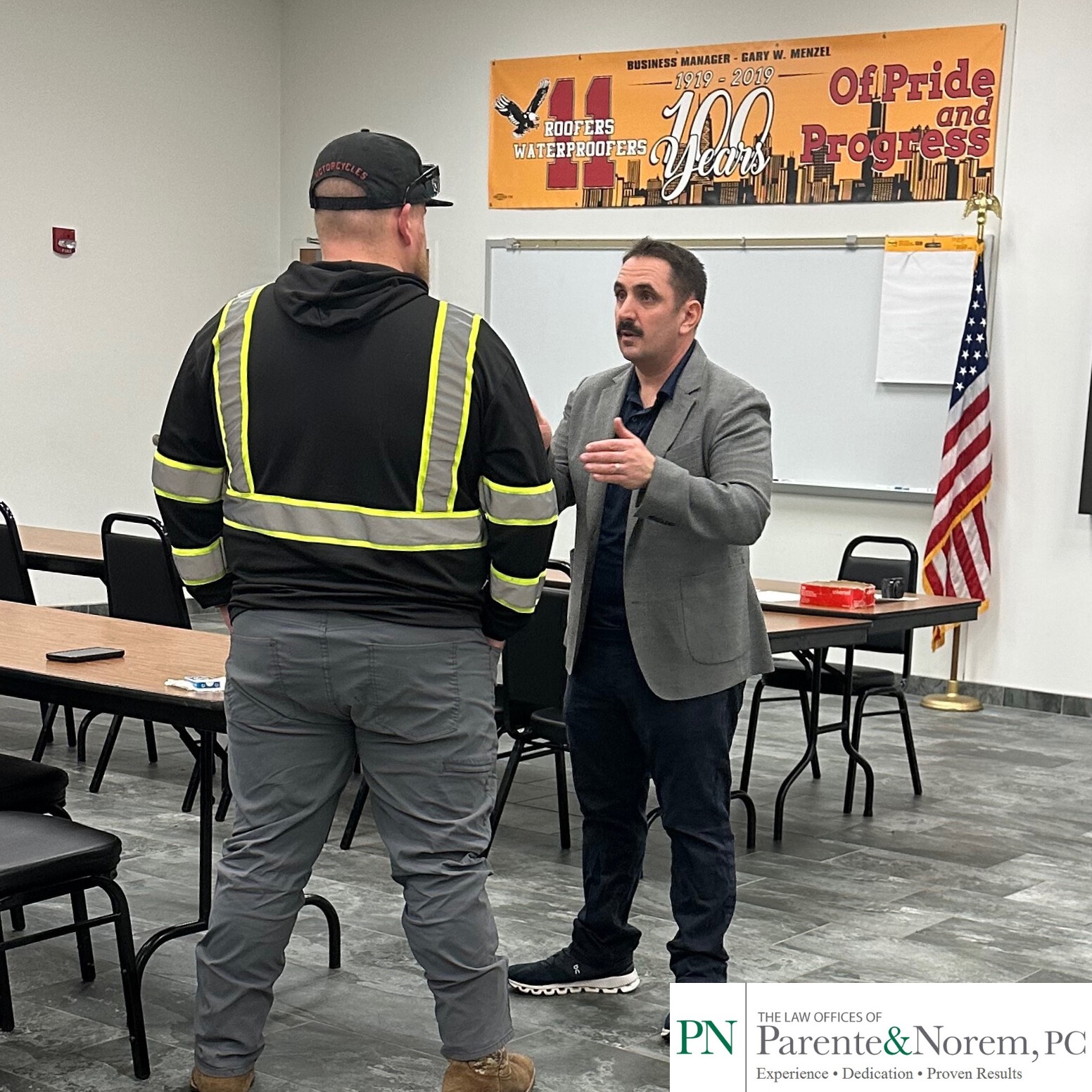
P&N BLOG | The Law Offices of Parente & Norem, P.C. Attends Roofers Local 11 Apprenticeship Program Event
The Law Offices of Parente & Norem, P.C. was proud to attend Roofers Local 11 Apprenticeship Program! This event was held on Saturday, December 2, 2023 at their Apprenticeship Training Center in Indian Head Park, IL.
Parente & Norem was represented by our Head Workers’ Compensation Attorney, Matt Coleman. Matt had the opportunity to speak with the first year apprenticeship students about work related injuries and workers compensation.
We are always very grateful to educate apprentices so they understand their rights as workers while they are still early in their career. While we hope that they never have to experience a work injury, we want them to be prepared if it happens.
A big thank you to Roofers Local 11 for allowing us to attend your program and speak with your students!
For more information on The Law Offices of Parente & Norem, P.C. or speak to an attorney, call/text us at 312.641.5926 or visit us at pninjurylaw.com

P&N BLOG | The Thanksgiving 2023 Road Trip Race & Tips for a Smoother Journey
Thanksgiving is a time for gratitude, family, and, inevitably, travel. As we prepare for the festivities of Thanksgiving 2023, a familiar challenge looms on the horizon – the annual pilgrimage to reach our loved ones. This year, the road to Thanksgiving dinner may be particularly fraught, with an estimated 55.4 million Americans embarking on journeys of at least 50 miles. According to AAA, this surge in travel makes it the busiest Thanksgiving season since 2019, underscoring the importance of strategic planning for those hitting the road.
The 2023 Holiday Road Trip Race
The vast majority of Thanksgiving travelers—49.13 million, to be exact—will be traversing the nation’s highways by car. With millions converging on the same travel corridors, traffic delays are inevitable. However, AAA suggests that with a bit of forethought and flexibility, drivers can minimize the frustration of holiday congestion.
Let’s Look At The Thanksgiving Travel Data
To better understand the ebbs and flows of Thanksgiving traffic, AAA turned to INRIX, an analytics firm specializing in transportation. Analyzing projected travel periods from Wednesday, Nov. 22, to Sunday, Nov. 26, the data reveals crucial insights for drivers.
The ‘Worst’ Times to Drive
If you’re dreading getting stuck in a sea of brake lights, the data pinpoints the peak congestion hours: (all times are CST)
– Wednesday, Nov. 22: 2:00 p.m. – 6:00 p.m.
– Thursday, Nov. 23: 11:00 a.m. – 3:00 p.m.
– Friday, Nov. 24: 12:00 p.m. – 4:00 p.m.
– Saturday, Nov. 25: 3:00 p.m. – 5:00 p.m.
– Sunday, Nov. 26: 3:00 p.m. – 5:00 p.m.
Interestingly, the absolute worst time for congestion is the kickoff on Wednesday, Nov. 22, from 2:00 p.m. to 6:00 p.m.
The ‘Best’ Times to Drive
To avoid the chaos, consider hitting the road during these recommended windows: (all times are CST)
– Wednesday, Nov. 22: Before 11 a.m.
– Thursday, Nov. 23: Before 10 a.m. or after 5 p.m.
– Friday, Nov. 24: Before 11:00 a.m. or after 7:00 p.m.
– Saturday, Nov. 25: Before 12:00 p.m.
– Sunday, Nov. 26: Before 12:00 p.m.
City-specific Nuances
While these windows offer general guidance, it’s crucial to note that peak congestion varies from city to city. For instance, San Francisco anticipates its peak congestion on Sunday at 7 p.m., while Denver expects it on Friday around 5:45 p.m. These variations highlight the need for city-specific travel planning.
The Growing Trend
AAA’s data reveals a consistent uptrend in Thanksgiving travel, with projections surpassing 50 million since 2017. This surge, only rivaled by post-9/11, pre-recession trends in 2005 and 2007, underscores the increasing importance of strategic planning for holiday travel.
As we gear up for Thanksgiving 2023, the road ahead may be congested, but with timely departures and a touch of flexibility, drivers can navigate the holiday traffic with a little more ease. Remember, the journey is as important as the destination, and a smooth drive sets the tone for a joyful Thanksgiving celebration with family and friends. Safe travels!
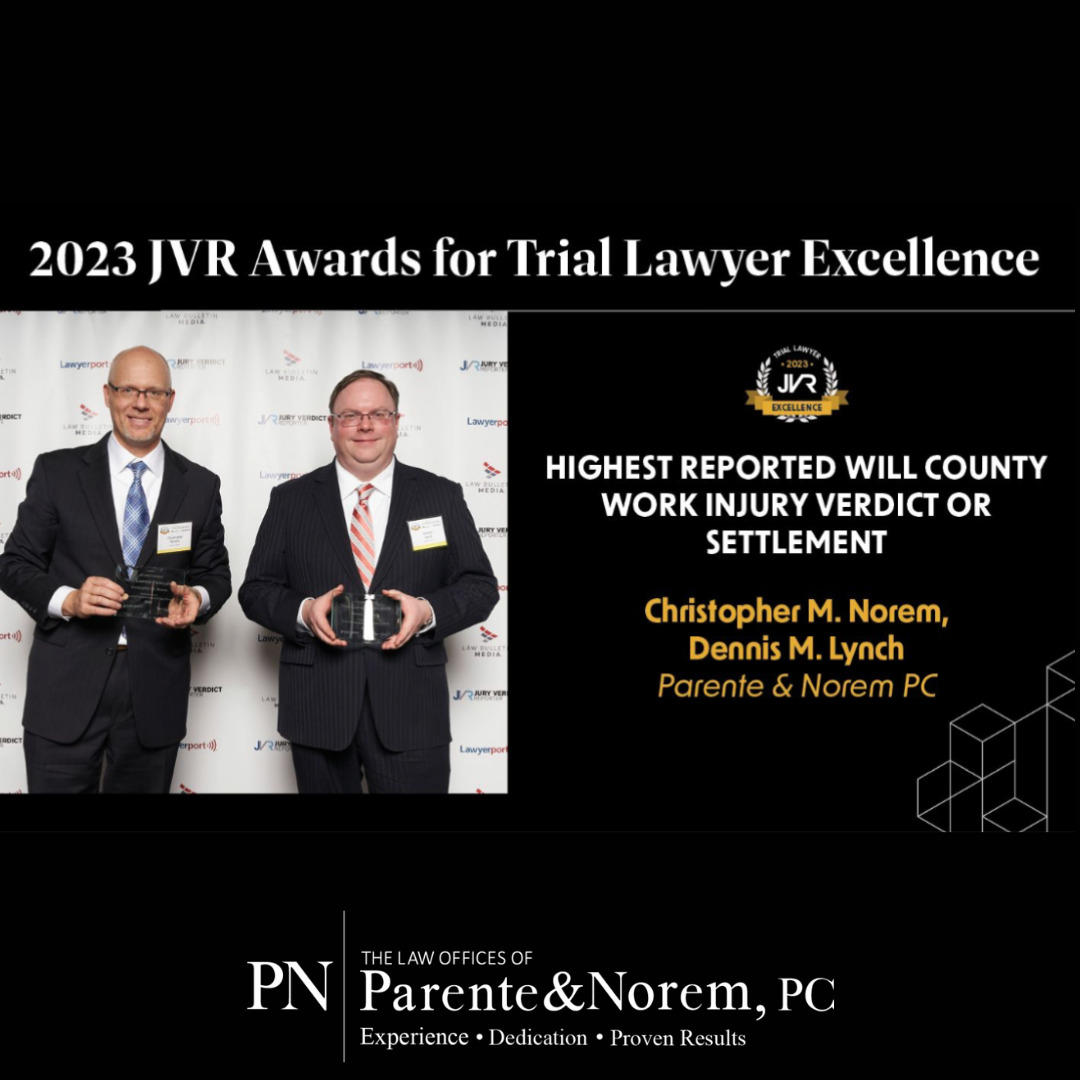
Chris Norem and Dennis Lynch Honored at 2023 JVR Awards for Trial Lawyer Excellence
The Law Offices of Parente & Norem, P.C. would like to congratulate Chris Norem and Dennis Lynch, who were honored last Wednesday at the 2023 JVR Awards for Trial Lawyer Excellence in the category of Highest Reported Work Injury Verdict or Settlement. They were recognized for their record-setting $7 million settlement in the case of the death of a 22-year-old hostler driver, which they obtained in June of this year.
This is the second record setting verdict for Norem and Lynch, who also obtained the highest ever amount awarded by a jury in Winnebago County this month. When it comes to Experience, Dedication, and Proven Results, look no further than The Law Offices of Parente & Norem, P.C. We Win Big Cases!
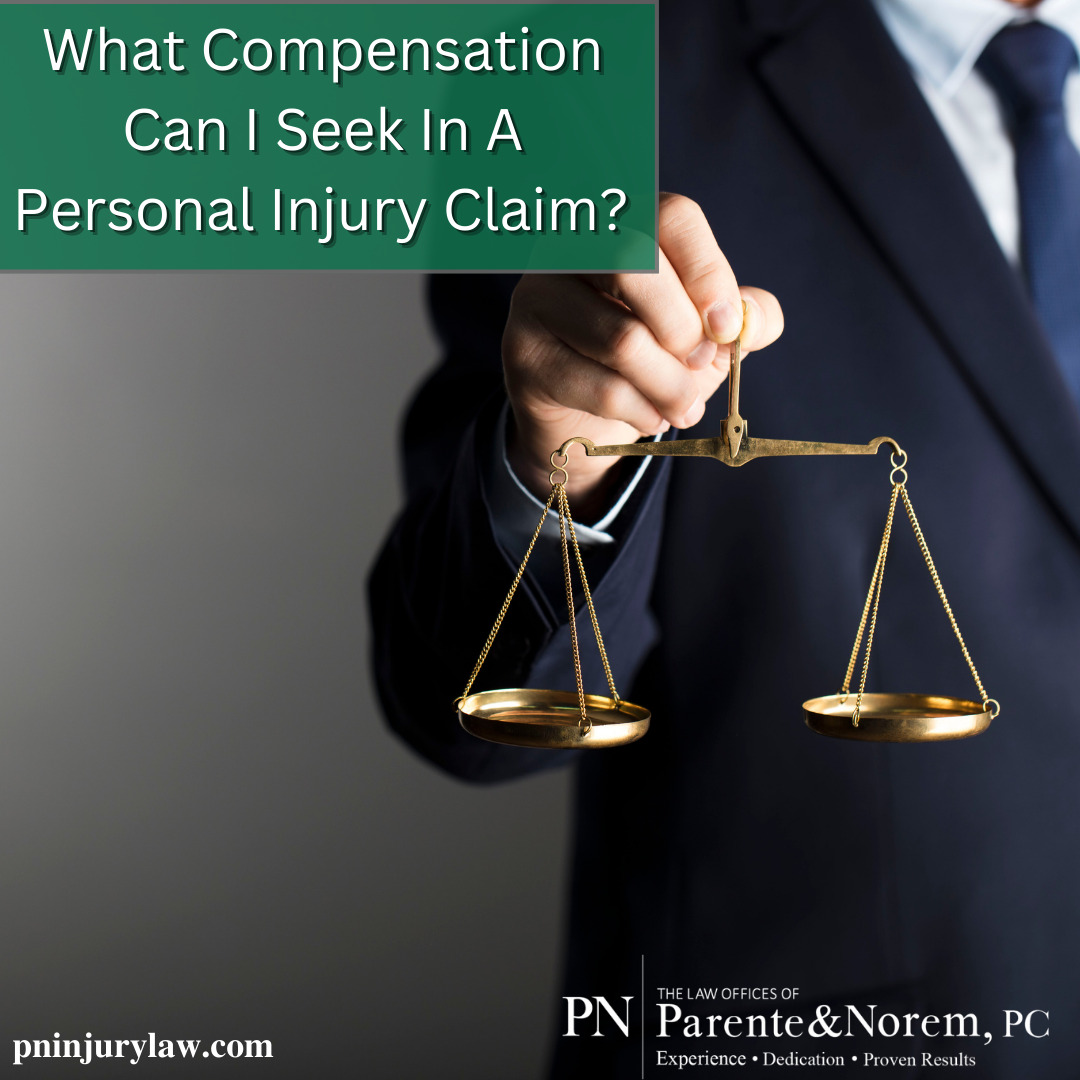
P&N BLOG | What Compensation Can I Seek In A Personal Injury Claim?
If you’ve been injured due to someone’s negligence or wrongful actions, understanding the types of compensation available to you is crucial in assessing the value of your personal injury claim. Laws are in place to protect your rights and entitle you to seek compensation for the losses you’ve incurred. In this blog post, we’ll walk you through the various types of personal injury compensation, including economic damages, non-economic damages, punitive damages, and wrongful death damages. We’ll also explore the limitations on injury compensation and offer insights into how you can obtain the compensation you rightfully deserve. For a free case evaluation with one of our experienced trial attorneys here at The Law Offices of Parente & Norem, P.C. call/text us at 312.641.5926 or fill out a contact form right here on our website.
Types of Personal Injury Compensation:
- Medical Bills: Reimbursement for all medical expenses related to your injury, including hospital stays, surgeries, lab tests, and prescription medications.
- Future Medical Costs: If your injuries are permanent or require ongoing care, you can seek compensation for anticipated future medical expenses.
- Lost Wages: Compensation for income lost due to missed workdays, sick days, or vacation days necessitated by your injury.
- Future Lost Earnings: If your ability to work has been affected, you may be entitled to compensation for the income you would have earned had the injury not occurred.
- Property Damage: Reimbursement for the loss of or damage to your property resulting from the injury.
- Other Out-of-Pocket Expenses: Compensation for additional financial losses incurred due to the defendant’s negligent or wrongful actions.
Estimating these losses involves reviewing medical bills, paychecks, and working with experts to project future care needs and lost earnings.
Non-Economic Damages: Non-economic damages account for losses that do not have a direct financial impact but significantly affect your quality of life. These damages include:
- Pain and Suffering: Compensation for physical and mental pain resulting from your injuries.
- Emotional Distress: Damages for mental anguish caused by the accident and resulting injuries.
- Loss of Consortium: Compensation for the loss of companionship, intimacy, or interaction with loved ones due to the accident or injuries.
- Disfigurement: Reimbursement for any physical disfigurement caused by the injury.
- Loss of Enjoyment of Life: Compensation for the inability to partake in activities that once brought joy.
Calculating non-economic damages can be complex, involving methods like the per diem or multiplier approach. Our personal injury lawyers at The Law Offices of Parente & Norem, P.C. can help you document the extent of these losses to maximize the compensation available.
Punitive Damages: If the defendant’s conduct was more than just negligent, but intentionally harmful or reckless, your injury compensation may include punitive damages. Unlike other forms of compensation, punitive damages aim to punish the defendant rather than make you whole. The court determines the amount based on the severity of the defendant’s actions.
Wrongful Death Damages: In cases where a person is killed due to negligence or intentional wrongdoing, wrongful death damages may be pursued by the estate of the deceased person or close family members. These damages can include:
- Medical Bills Incurred Before Death
- Pain and Suffering Experienced Before Death
- Funeral and Burial Expenses
- Loss of the Financial Contribution the Deceased Would Have Made
- Emotional Distress and Mental Anguish Experienced by Surviving Family Members
- Loss of Consortium: Compensation for the loss of the relationship shared with the deceased.
Limitations on Injury Compensation:
Tort Reform Limits: Some states have enacted tort reform laws that limit the amount of compensation victims can receive in specific injury claims. These laws, which may cap non-economic and punitive damages, are particularly prevalent in medical malpractice cases.
Insurance Policy Limits: In many cases, insurance companies will be responsible for paying out compensation for your injury. Be aware that insurance policies have liability limits, and while you can pursue a claim for more than the policy limit, the excess amount won’t be covered by the insurer. In such cases, collecting from the defendant personally may be challenging.
Personal injury compensation is a comprehensive and intricate process. It encompasses various types of damages, each serving a unique purpose in providing you with the compensation you deserve. To ensure you receive fair compensation for your injuries, consult an experienced personal injury lawyer who can guide you through the process, whether through settlement negotiations or court litigation. Remember, you have rights and options to recover the damages for your losses, and a dedicated attorney will be your advocate in the pursuit of justice. If you or a loved one have been injured due to another’s negligence, The Law Offices of Parente & Norem, P.C. can help! Call/Text us today at 312.641.5926 for a free case evaluation.
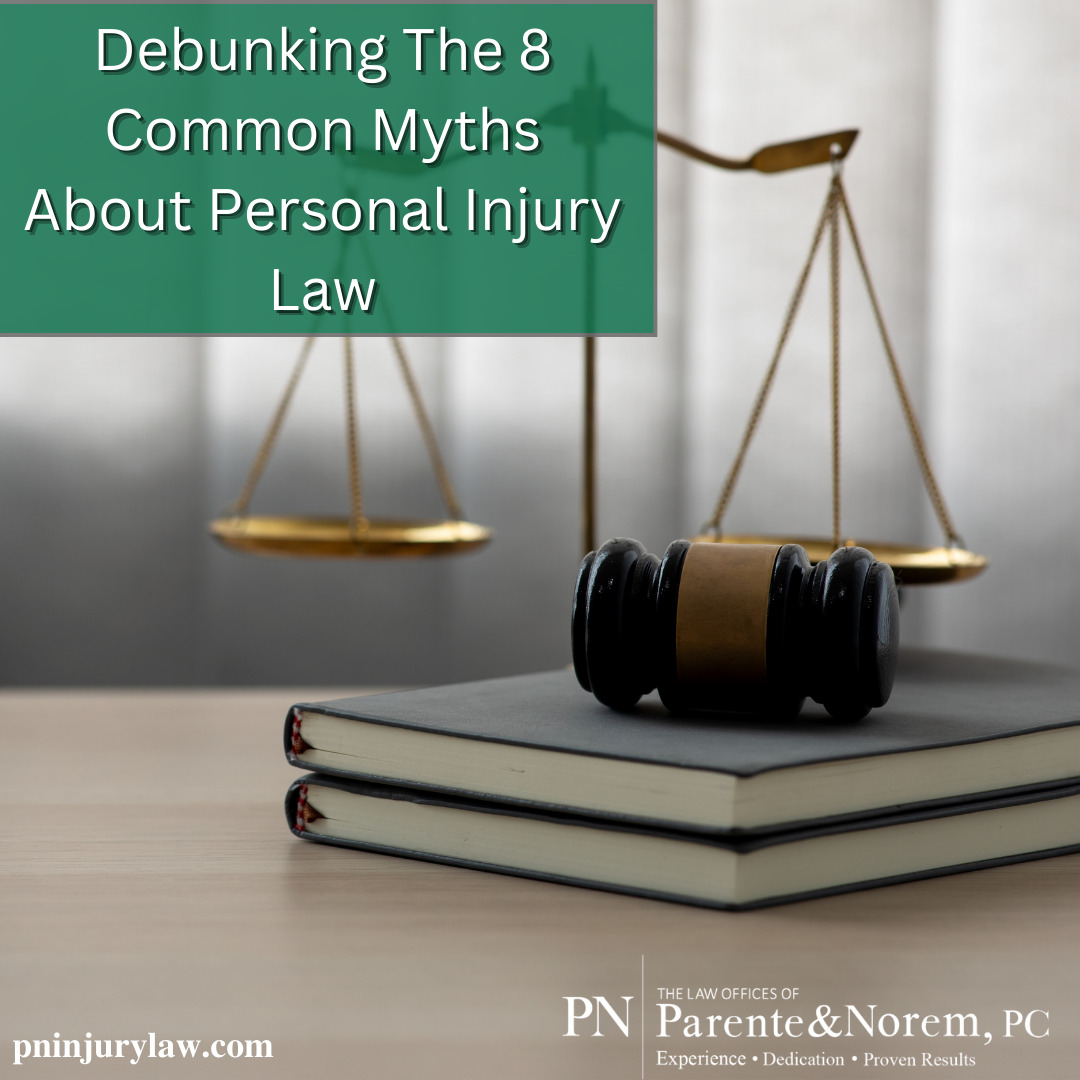
P&N BLOG | Debunking The 8 Common Myths About Personal Injury Law
Personal injuries can be life-altering events, and when they occur, it’s crucial to understand your rights and options for seeking compensation. Unfortunately, many victims shy away from pursuing personal injury claims due to various myths and misconceptions about the process. In this blog post, we will debunk some of the most common myths about personal injury law in Illinois and shed light on the facts to help you make informed decisions in the event of an accident.
Myth #1: Minor Injuries are Not Worth a Personal Injury Claim
Fact: After an accident, even seemingly minor injuries may have hidden, long-term consequences. It’s essential to consult a medical professional to assess the extent of your injuries. Many injuries are not immediately apparent and may worsen over time. Pursuing compensation for your injuries is a responsible course of action to ensure you receive the necessary medical care and coverage for your losses.
Myth #2: People With Insurance Do Not Need a Personal Injury Lawyer
Fact: Insurance companies often prioritize their profits over your well-being. They may offer settlements that are far less than what you deserve. A personal injury lawyer can protect your interests and work to secure fair compensation. The experienced Trial Team at The Law Offices of Parente & Norem, P.C. is dedicated to helping you obtain the compensation you need to move forward after an accident.
Myth #3: Personal Injury Cases Can Be Filed at Any Time
Fact: Illinois has a statute of limitations on personal injury cases. Filing sooner is advisable, as evidence and witness testimonies can weaken or disappear over time, making it more challenging to establish liability.
Myth #4: You Will Ruin Someone’s Life by Suing Them
Fact: Many personal injury cases involve individuals close to the victim. It’s essential to prioritize your own health and financial well-being. In most cases, the responsible party’s insurance covers the settlement, sparing them from personal financial burden.
Myth #5: People Who File Personal Claims Are Greedy
Fact: Filing a personal injury claim is not about greed but rather seeking compensation for medical expenses, lost wages, and pain and suffering caused by someone else’s negligence. It is a legitimate way to recover from financial hardships resulting from an accident.
Myth 6: I’m pretty much guaranteed compensation to cover my losses.
Fact: While many personal injury cases result in settlements, compensation is not guaranteed, as each case is unique.
Myth 7: Holding out results in larger settlements.
Fact: Negotiating with a skilled personal injury attorney is often more effective than simply holding out for a larger settlement.
Myth 8: The courts are bogged down with personal injury cases.
Fact: Personal injury cases make up a relatively small portion of civil cases, and their numbers have even declined in recent years.
Debunking these common myths about personal injury law in Illinois reveals the truth: pursuing a personal injury claim is a responsible step when you’ve suffered injuries due to someone else’s negligence. Seeking the help of an experienced personal injury attorney can protect your rights, ensure fair compensation, and provide you with the support you need to recover from your accident-related hardships. Don’t let misconceptions deter you from seeking justice and the compensation you deserve. If you or a loved one have been injured due to another’s negligence, call The Law Offices of Parente & Norem, P.C. today at 312.641.5926 for a free case evaluation. We Win Big Cases!
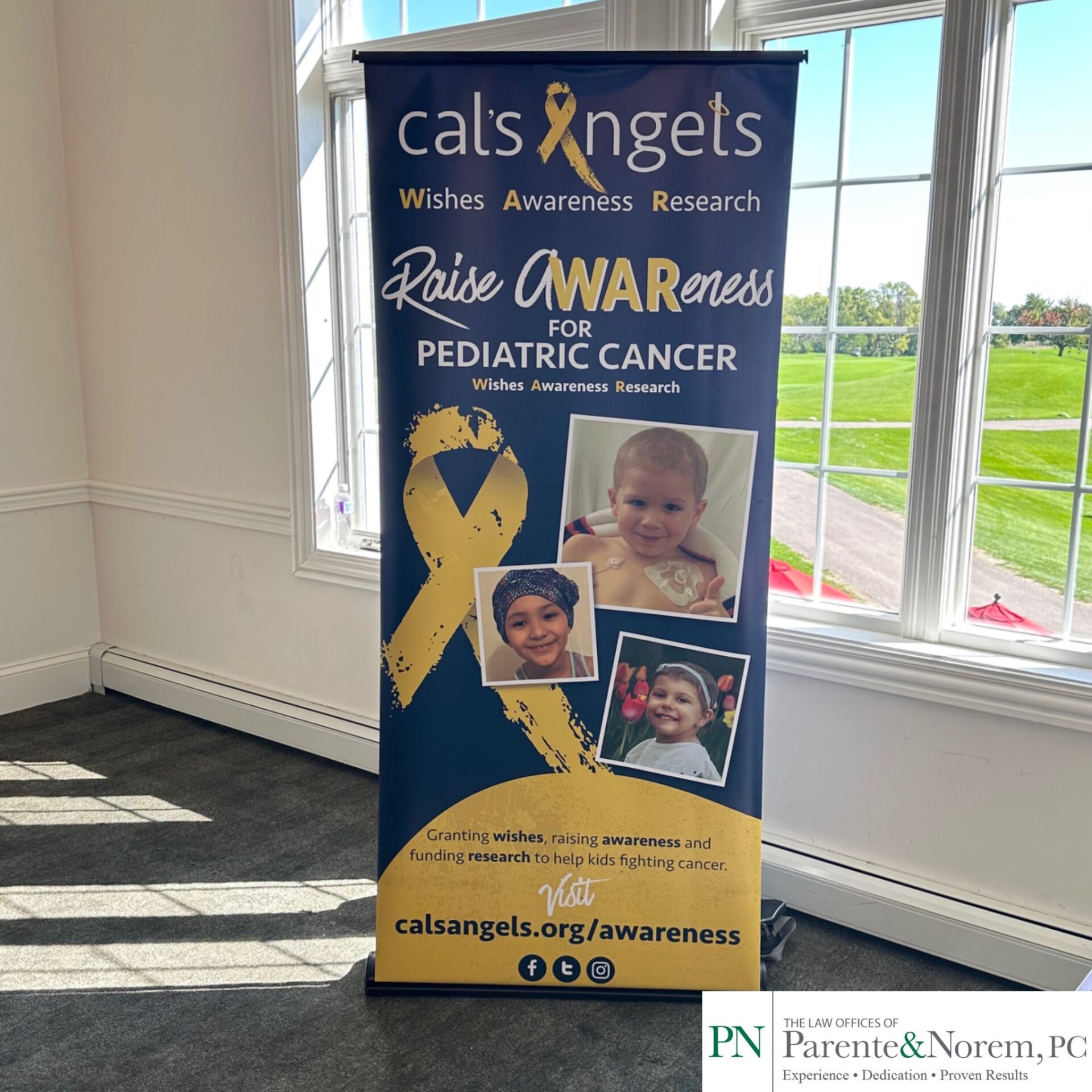
P&N BLOG | The Law Offices of Parente & Norem Supports Local IBEW 15 Golf Outing Benefitting Cal’s Angels
The Law Offices of Parente & Norem, P.C. was proud to support IBEW Local 15 Charity Golf Outing! This outing was held on October 1st at Ruffled Feathers Golf Club in Lemont, Illinois.
This outing benefits Cal’s Angels, which is a pediatric cancer foundation with a mission of granting wishes, raising awareness, and funding research to help kids fighting cancer. This organization has pled over 1.2 million dollars to Chicagoland hospitals.
This was the first annual outing held by this local, and we are so grateful to be able to sponsor this event. Their membership spans across the entire northern half of Illinois and we had a great opportunity to meet many members, as well as support their great cause.
For more information on The Law Offices of Parente & Norem, P.C. or speak to an attorney, call/text us at 312.641.5926 or visit us at pninjurylaw.com
